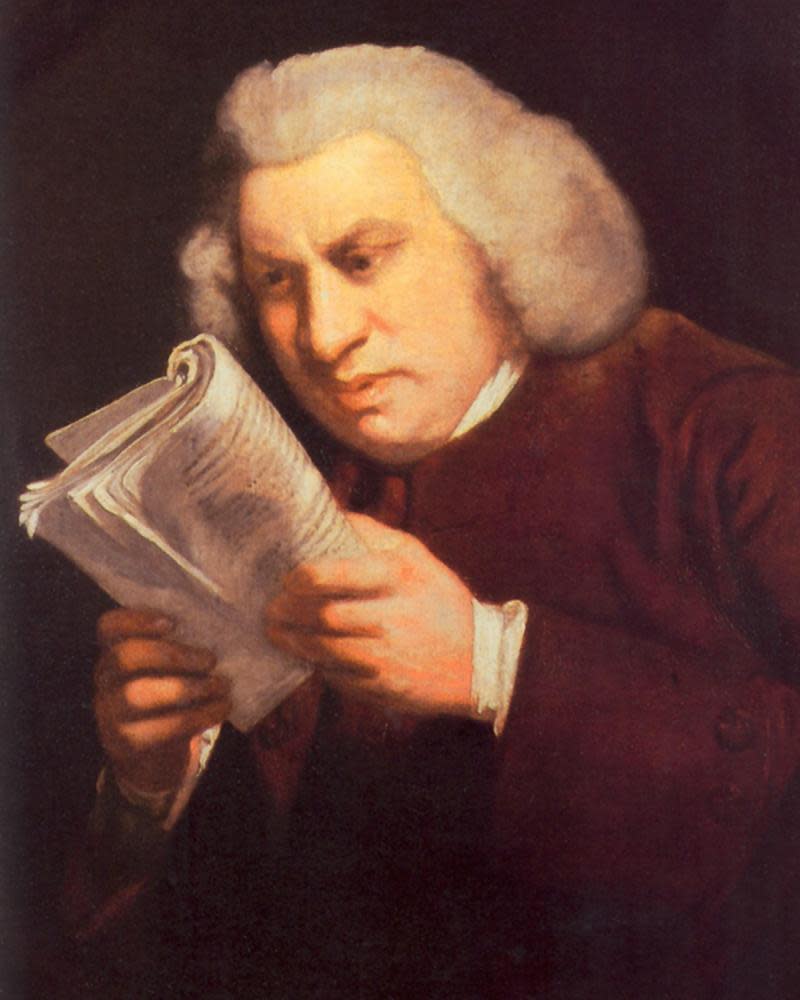Wit, wisdom and better than Wordle: why you should visit Dr Johnson’s birthplace museum
Civilisation comes in many sizes and, for Dr Samuel Johnson, compiler of A Dictionary of the English Language (1755), his home town of Lichfield was a microcosm of educated and ordered society. He once wrote of a visit to the Staffordshire city with his trusty biographer James Boswell: “I lately took my friend and showed him genuine civilised life in an English provincial town. I turned him loose at Lichfield.”
It is a trip worth repeating this summer, especially if you include a tour of Samuel Johnson’s Birthplace Museum & Bookshop, found close to the city’s ancient cathedral. The great lexicographer was born on 18 September 1709, in this house, built by his bookseller father, who ran his business from the ground floor.

I discovered the museum on a visit in 2017, when I was staying half an hour away in Atherstone. I was struck by the ordered ecclesiastical layout of the city centre – like something from Anthony Trollope. My teenage son, a reluctant companion, could have skipped our visit to the three-spired cathedral, but he was drawn in by Johnson’s obsession with words and his idea that their meaning had to be set down. He still remembers the “dictionary man”, although nothing else about Lichfield.
The museum’s Georgian rooms overlooking Breadmarket Street are hung with portraits, amusing quotes and the sort of outdated definitions that will amuse any fan of Wordle or Scrabble. But the museum also honours Johnson’s serious project, which really did shape the intellectual world.
Though Johnson excelled at Lichfield and Stourbridge grammar schools and was duly sent off to Oxford, his scholarly career hit the buffers when his family fell on hard times and he had to cut short his studies. After failing to eke out a living from journalism, translation and teaching, he set off to London in desperation, alongside his equally ambitious friend, the budding theatrical star David Garrick. The hoary old story says they took turns walking and riding, since they only had one horse between them.
Johnson worked for eight years on the dictionary that made his name, helped by six assistants, all researching inside his home off Fleet Street. Today this house at 17 Gough Street is also a small museum and is perhaps better known than the Lichfield birthplace. However, both celebrate his legendary wit and wisdom, the reputation of which was hugely boosted in 1791 with the publication of Boswell’s The Life of Samuel Johnson.
Although London was where Johnson and his aphorisms first impressed literary society, let’s admit that, despite the fact that his most popular quote argues that any man who is tired of London is tired of everything, Lichfield really does work as an antidote to all the fuss of the capital.
This year the Lichfield Time Travellers app will allow you to enter a dozen “time portals”, giving access to information on key historic places in Lichfield, including the imposing house of Erasmus Darwin, father to Charles.
Johnson adored walking urban streets and touring the city in the great man’s footsteps does expose you to a dangerous urge to concoct fake Johnson quotes, all beginning, of course, with his trademark apostrophic “Sir!”. It is probably best, though, to just fall back on the genuine genius of this phrase-maker.
One of Johnson’s lesser-known wisdoms truly sets the tone for this museum in Lichfield: “Curiosity is, in great and generous minds, the first passion and the last.”

 Yahoo News
Yahoo News 
